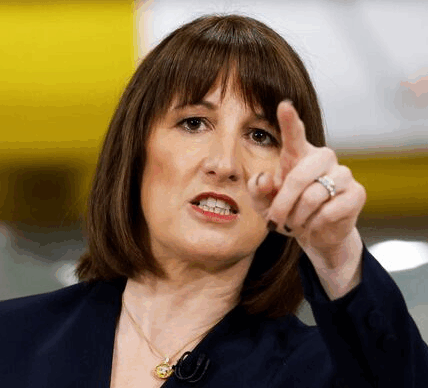Labour has crossed a fiscal red line. Every homeowner should be afraid.

Noe Rachel Reeves could tax our homes in the autumn Budget (Image: Getty)
It’s always been a cornerstone of British life that people’s main homes are exempt from capital gains tax (CGT) when they sell them. It’s called private residence relief, and every homeowner takes it for granted. Or at least, they used to.
Now the Treasury is openly toying with removing that relief, and Chancellor Rachel Reeves has installed as her budget guru a man who has long championed the idea of taxing people’s primary homes, and pretty much everything else for good measure.
His name is Torsten Bell. He’s a former adviser to Gordon Brown and the brainbox behind the laughable “Ed Stone” list of election pledges that thankfully sunk Ed Miliband’s bid to become PM in 2015.
Bell then went on to spend almost a decade running the left-leaning Resolution Foundation think tank.
There, he amused himself by preparing his grandiose “Economy 2030” report which recommended levying a 28% capital gains tax on all property sales, including main residences. That was just one of 20 brutal taxes he’d like to impose on Brits.And this is the man Reeves chose to draw up her second Budget.
Let’s consider what Bell’s property CGT idea would mean in practice.
Say you bought a family home for £150,000 two decades ago. Today, it might fetch £400,000. Under Bell’s model, you could be hit with a £70,000 tax bill when you sell.
Instead of moving up the property ladder, you’d end up moving down. Especially if you still had to pay stamp duty on your next purchase.
And CGT would be slapped on your next house move, and the next. That’s if anybody dared move at all. Most would stay put, hoping the tax would be wiped out by a future government.
It’s economically illiterate, of course. But we’ve come to expect that from Rachel Reeves.
The Treasury is now seriously considering slapping CGT on home sales. It’s being sneaky though. Reports suggest Labour could initially restrict it to properties worth £1.5million and above. That would only affect around 120,000 households.
It’s the oldest trick in the Treasury’s book. Once introduced, the tax threshold would be frozen for decades, dragging more of us into the net as house prices climbed.
That’s what’s happened with the £325,000 inheritance tax (IHT) nil-rate band. That was set in 2009 but will remain frozen until 2030, that’s 21 years in total.
An even bigger risk is that a cash-strapped Chancellor cuts it in future to, say, £1million, then £500,000. Over time, millions could get caught.
The left sees property appreciation as some magical windfall, rather than something people have worked for over a lifetime.
Deposits are built from taxed income. Mortgages are serviced for decades, with interest payments adding hundreds of thousands of pounds to the total cost of purchase.
Homeowners pay stamp duty upfront and council tax every year. To then hit them again with CGT is not “fairness”. It’s double or even triple taxation.
Bell won’t stop at CGT. He’s also floated scrapping the £175,000 main residence IHT allowance that helps families pass homes on to children without triggering a tax bill.
He’s even suggested scrapping the £325,000 nil-rate band altogether. That would see every homeowners face a double charge on death – IHT and CGT – swallowing 60% or 70% of the home’s value.
Labour did rule out touching private residence relief during the election. The problem is, we can’t believe a word they say.
PM Keir Starmer lies and lies. Reeves lies and lies, and don’t get me started on dishonest and deluded Ed Miliband.
For now, Bell won’t say. But with Reeves facing a fiscal hole of up to £50billion, the temptation to raid homeowners one way or another will be huge.
Britain’s housing market underpins not only family finances but the wider economy. To target it so directly would be to gamble recklessly with both. No competent Chancellor would consider it. But we have Rachel Reeves.

